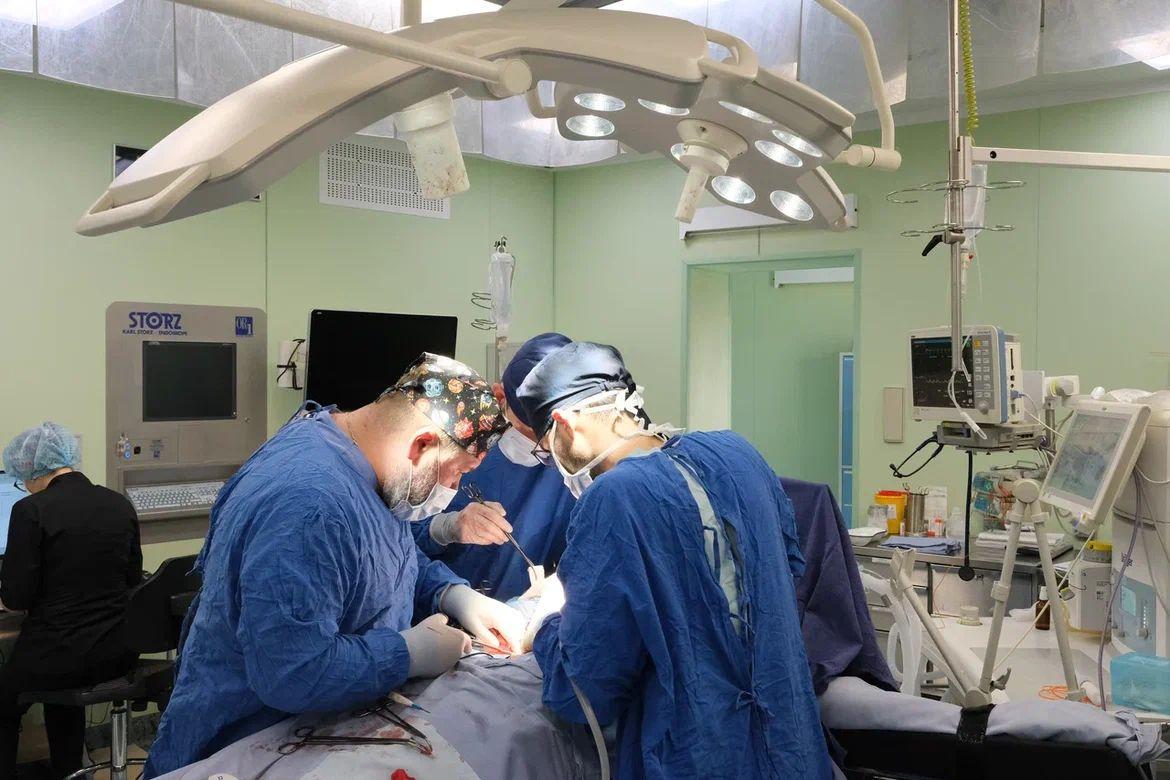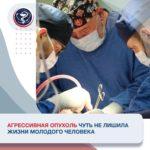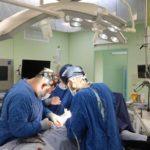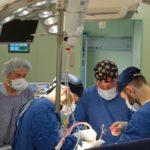AN AGGRESSIVE TUMOUR ALMOST TOOK A YOUNG MAN’S LIFE
Now the 24-year-old Muscovite can safely make plans for the future, his life is no longer threatened by the aggressive disease. The prognosis of surgeons at the P. Hertsen Moscow Oncology Research Institute (MORI) – branch of the FSBI “National Medical Research Radiological Centre” (NMRRC) of the Ministry of Health of the Russian Federation, is optimistic.
The main danger of almost any oncological process is that very often it does not manifest itself in the early stages. And this only complicates the situation, because the patient does not immediately turn to the doctor. This is what happened to our hero. Cancer came into Vadim’s life about a year ago, when he began to notice alarming symptoms, but for a long time wrote them off as inflammation. Only 12 months later, at the insistence of his mum, he went to see a doctor. It was she who began to notice sudden changes in her son’s gait and sounded the alarm.
Vadim was diagnosed with an aggressive form of testicular cancer, a disease that most often occurs at a young age. By this time the tumour had reached gigantic size (24 by 20 centimetres) and had already metastasised to lymph nodes in the retroperitoneum, mediastinum and lungs.
Vadim was prescribed chemotherapy in the oncological hospital in Moscow. The treatment started, and after 4 courses the doctors managed to achieve a positive effect, the size of metastatic foci decreased.
The young man’s mother independently applied to the National Medical Research Radiological Centre for a consultation on the possibility of surgical treatment. At the oncological consultation, a decision was made to perform surgery in such a difficult clinical situation.
The surgical team was headed by Nikolay Vorobyev, Deputy Director of Surgery at the P. Hertsen Moscow Oncology Research Institute (MORI). The specialists had to perform an orchifuniculectomy, i.e. removal of the testicle together with the tumour mass by passing it through the partially destroyed inguinal canal, and then a retroperitoneal lymphadenectomy to remove the lymph nodes affected by the tumour process.
“Our patient was affected by rather large lymph nodes, which were located to the right and left of the aorta, as well as behind the inferior vena cava, involving the right ureter. And despite the fact that such operations are often unpredictable and always technically difficult, we managed to radically perform the surgical intervention,” comments Nikolai Vladimirovich.
“The retroperitoneal lymphadenectomy is a more technically difficult stage, explains the attending physician, oncourologist Alexander Tolkachev. The whole point is that after chemotherapy, tissues change their structure (density, blood supply) and become more fragile. And since most of the enlarged lymph nodes are intimately adjacent to large vessels, the removal of this tumour mass is a very difficult task”.
The operation, which lasted more than 3 hours, was completed successfully. Now the patient and the doctors need to wait for the conclusion of the pathomorphological examination of the surgical material. It is on this that further tactics will depend.
It is important that Moscow specialists, taking into account the young reproductive age of the patient, took care of his future. Even before the start of treatment, Vadim donated biological material to the cryobank in order to preserve the possibility of having children after the completion of such a difficult treatment.
Dear friends, oncologists remind us that it is especially important for young people to pay attention to self-examination. Any changes that you may notice should be a reason to contact your doctor immediately. And this clinical case is a vivid confirmation of this.








